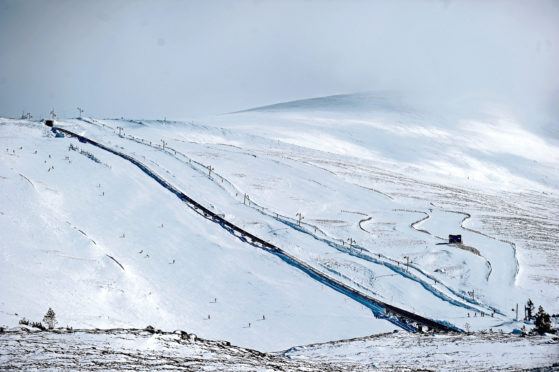Experts have warned of a major drop in the number of days of snow in the high mountains of the Cairngorms, as climate change starts to take hold.
Commissioned by the Cairngorms National Park Authority and ClimateXChange – Scotland’s centre of expertise connecting climate change research and policy – the report suggests that in the next 10 years, snow cover patterns may remain the same as the previous 10 years.
But it says that from 2030 onwards “there is likely to be a substantial decline in the number of days of snow cover”.
The study, which looks at temperature trends and snow cover in the national park, models possible future changes to snow cover caused by climate change.
The study has been carried out by researchers at the James Hutton Institute (JHI), near Dundee, and Scotland’s Rural College, using historic temperature and precipitation data going back 100 years with observed snow cover days from 1969-2005 to identify how temperature affects snow.
They then used data modelling and climate projections from the Met Office to identify some possible future trends for snow cover in the Cairngorms.
Global warming caused by increasing greenhouse gas emissions is impacting on snow cover as well as biodiversity in mountain areas across the world, and while there have been significant snow events in recent years, the overall trend is declining snow cover – this is predicted to continue and accelerate in the future.
Decreases in snow cover will have important consequences for species composition and distribution, potentially resulting in biodiversity loss.
The amount and temperature of ground water, streams and rivers, and reduced river flows in winter will impact local water supplies and there is the potential for increased flooding due to rapid snow melt.
Mike Rivington of the James Hutton Institute said: “There are many weather factors that determine when, where and how much snow falls, and what happens to it once it’s on the ground, for example how windy it is.
“If we are successful in reducing emissions globally, we may moderate the impact.”
A paper titled Net Zero With Nature is to be placed before the Cairngorms National Park Authority board on Friday, outlining so-called “nature-based solutions” to the situation facing the mountain region.
Meanwhile, autumn 2019 has been declared the sixth coldest on record by experts at JHI.
The met station at Invergowrie found the daily mean air temperature was 8.4 degrees C.
The only colder autumns were in 2013, 1993, 1992, 1980 and 1965.
There were 289 hours of sun, average for September and above average for October, but November was the seventh dullest on record.










